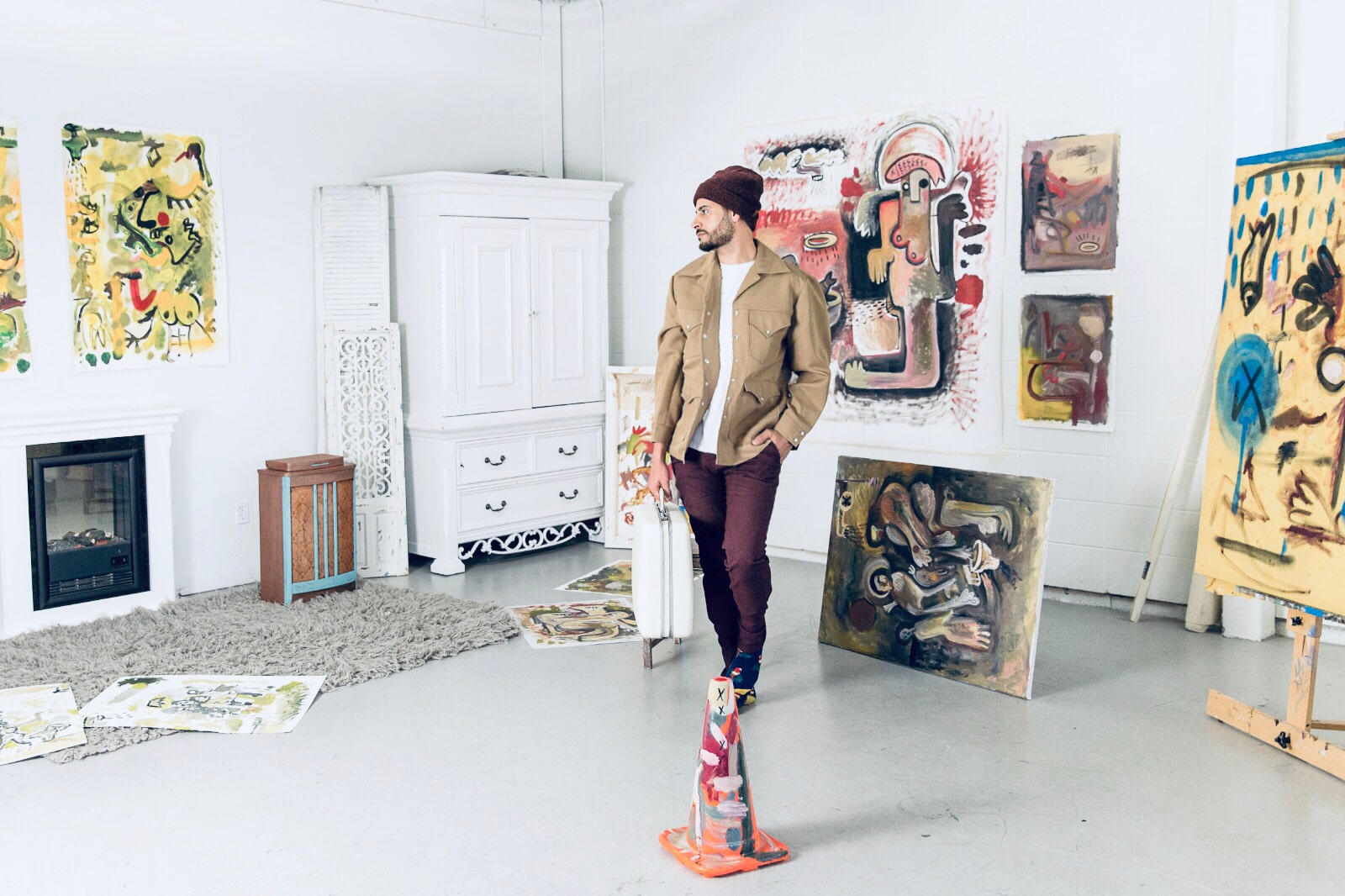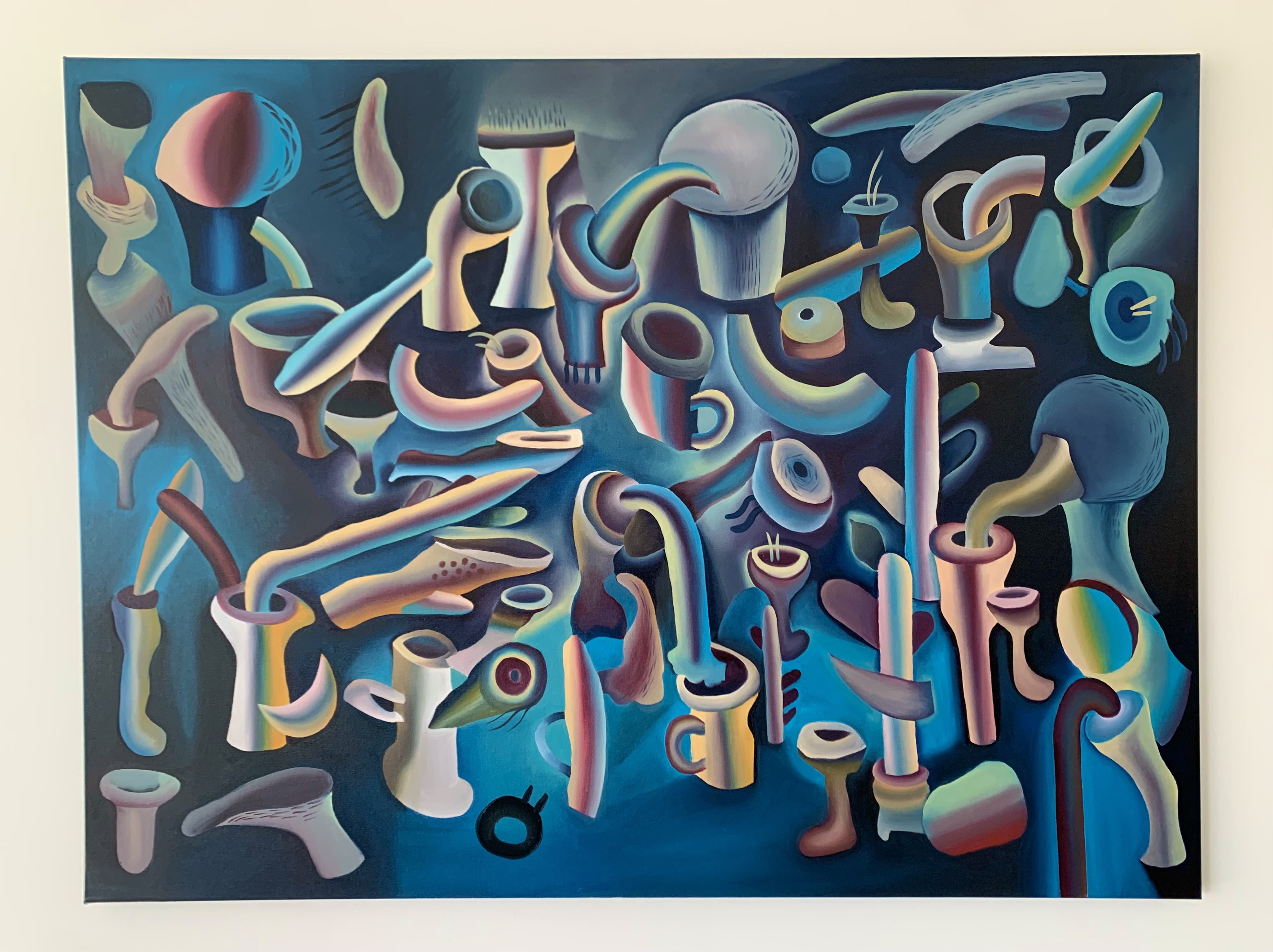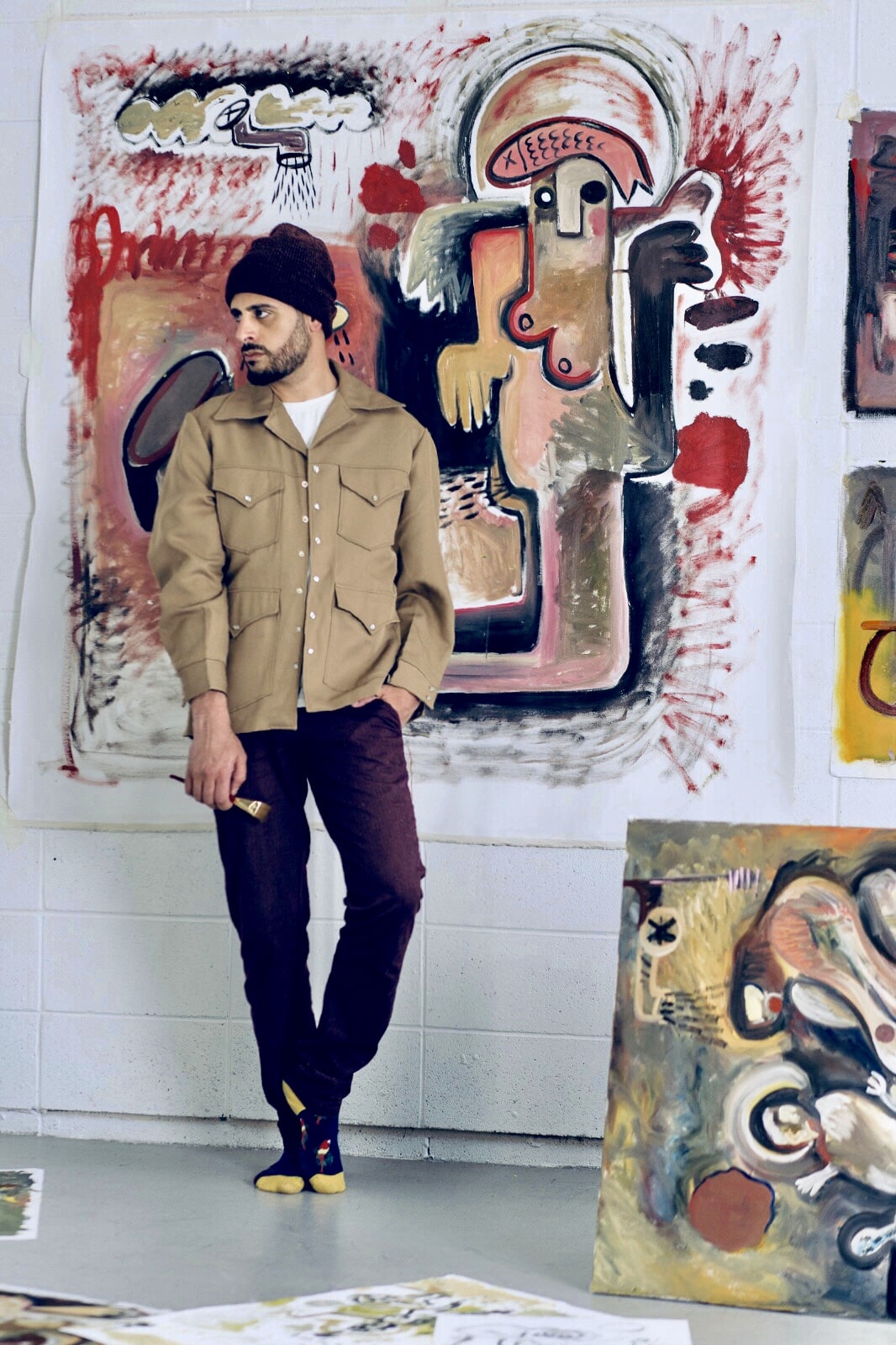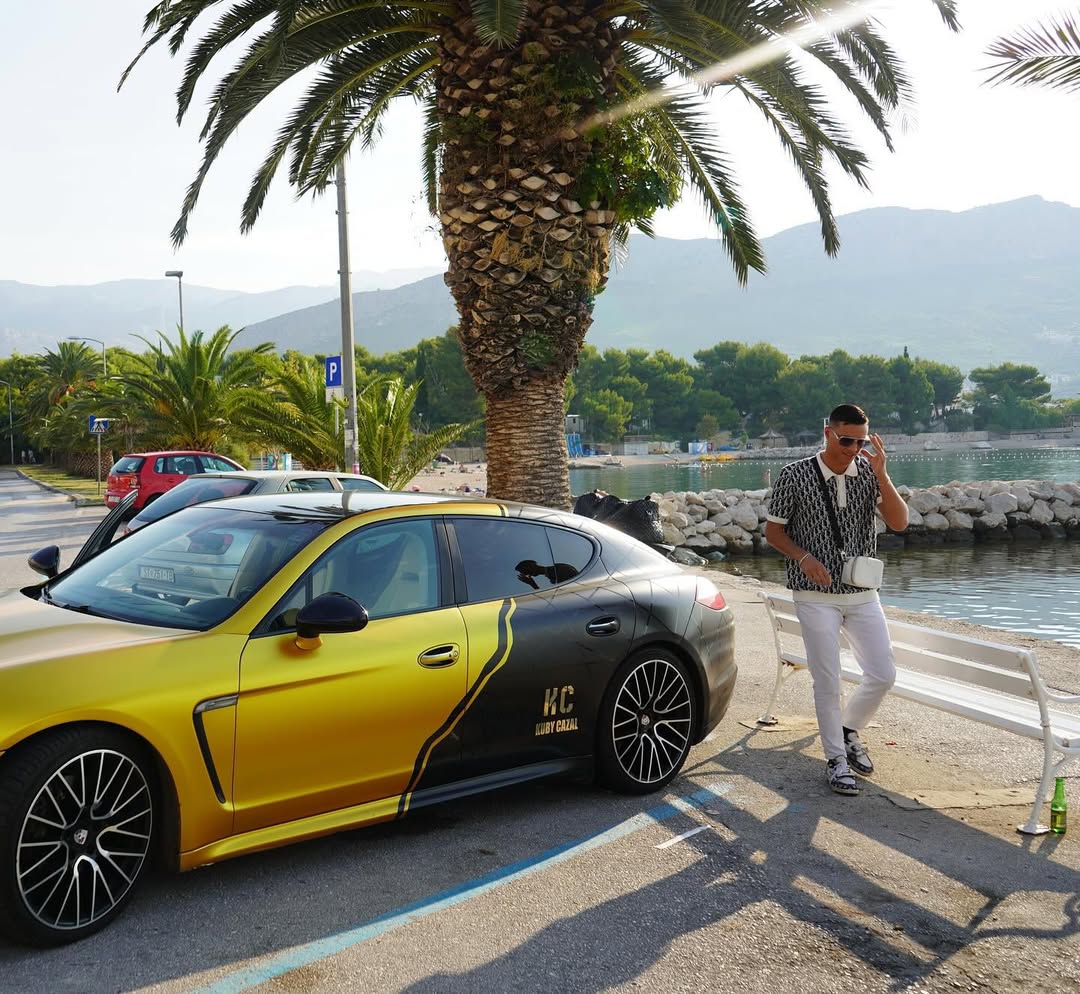Lifestyle
Art Under Occupation: Palestinian-Canadian artist Hanny Khoury talks art, identity, and belonging

Palestinian-Canadian artist Hanny Khoury has spent years thoughtfully exploring his identity, trying to establish his understanding of what it means to be Palestinian.Art has always been his lifeline, an outlet where he channels frustrations and emotions, seeking a means of representing his past in a way that empathizes with an international audience. From Palestine to Canada, his journey has been difficult and encouraging, a true redemption arc that’s far from over.
Khoury grew up in a small village in historical Palestine-one of six children-under the Israeli occupation. As far back as he can remember, his identity, and the identities of his family and neighbors, were conflated with the information being spread by the occupation. “You are a Palestinian, a minority living under occupation. The environment is weird, nothing is clear.You can’t identify yourself and you don’t grow up with a clear identity that’s solid,” says Khoury.“From school to the media, the occupation is basically programming your brain, to make you forget your identity.”

Art was the one thing that could ground Khoury to something tangible. It was a means of coping with the instability of his daily life and allowed him to express his confusion. As he describes, it was a means of creating an entirely new world: “It’s like I was creating my own environment, my own life, the way I wanted it to be. With time, art became a healing process for me. It became the one thing through which I rebuild the relationship with everything around me and make peace with it. Heal it. That’s how art spoke to me. Art became like food for me, or water.”Even when his parents struggled to afford necessities, his mother would use soil and flowers to make natural pigments he could paint with. Walls, doors, broken pieces of wood-anything could serve as a canvas in Khoury’s eyes.
Eventually, after years of tension, both internally and with his environment, he made his way to Canada. This fresh start opened his mind, and he finally found the space and time to focus on his practice. It was during this period that he began to consider the parameters of being a Palestinian artist in a contemporary context. As a child, Khoury’s sources of artistic inspiration were limited to what was acceptable under the occupation. Names from Western art history, like Salvador Dali and Pablo Picasso, were tolerable, but examples of Palestinian art were scarce. “Back then, I didn’t have anything that made me a Palestinian artist. I got this sense of belonging later in life, through my own research. I developedan awareness about our existence as Palestinians and then my art started to belong to the history and the story of Palestine. Before that, I didn’t have the opportunity to learn that information,” says Khoury.

Through his studies and careful research, Khoury began to form his own idea about the critical difference between being a Palestinian artist and producing Palestine art. “I think the Palestinian story of identity loss, it had its own time,” he explains.“Silman Mansour, Nabil Anani, Ismail Shammout-those artists had to do it because they had to construct their identity and the identity of the Palestinian people. For us, as the young generation in or from Palestine, we must do something different. We have to work with an international language, while still belonging to the Palestinian identity.” Khoury’s search for identity is also a search for expression, finding a way to leverage Palestinian form to resonate on an international, even universal, level.
Currently represented by Mark Hachem Gallery, Khoury’s work is set to make an impression on audiences around the world. He has already made great strides with his ability to translate his own experiences into a visual, emotionallanguage that anyone can connect with. “What I have suffered in my life, the experiences, the journey I had in Palestine-this is what developed my international language of art. This is where it came from. The figures, the colors, the balance. Everything that makes up my work is Palestinian, but the figures themselves aren’t necessarily Palestinian,” he explains. “Art is translating the time period that we live in, visually.The modern world of art is not translating specific moments, it’s translating specific emotions. We talk about our conflicts, our difficulties, our pain, the system. That’s what we talk about as artists. So, when we look at art, it should deliver emotion. It doesn’t necessarily have to do with belonging to the physical world. It can be connected to the emotional world, or faith.” Confident and passionate, Khoury is forging ahead with a new vision of what Palestinian art could be, offering the next generation of young artists what he was denied growing up: an inspirational figure.
Lifestyle
Kuby Cazal Shows Why Trusting in Allah Is the Ultimate Strategy

In an online world where entrepreneurship is often measured in Rolexes, rented Lambos, and airport selfies, Kuby Cazal stands out — not because he’s louder, but because he’s real.
He doesn’t flash his wealth. He doesn’t post luxury for the sake of validation. In fact, he’s said in several interviews that he doesn’t want to be known as the guy who flexes with money.
Instead?
He flexes with faith.
Kuby Cazal is a practicing Muslim — and for him, business isn’t just about profits and success. It’s about gratitude, growth, and fulfilling the responsibilities that come with the blessings Allah has given him.
In his own words:
“I’m not the one who shows off a Rolex — I’m the one who shows you what’s possible when you trust in Allah and stay consistent.”
And it shows. While others post stories of flashy lifestyles, Kuby’s focus is on impact. He prays. He fasts. He makes dua for his team. And he constantly reminds his audience that everything he has is from Allah — not from his own effort alone.
Behind the scenes, he’s helped countless dropshippers quietly. No screenshots. No clout. Just support. His message is simple: you can build a business and stay true to your deen.
But it wasn’t always this way. Kuby Cazal himself admits that a few years ago, his connection to Islam wasn’t where it should’ve been. “I prayed sometimes, I skipped sometimes,” he shares. “Now I don’t skip. Because everything I have, everything I am — it’s from Allah. Why would I ever miss thanking Him?”
In a world full of noise, Kuby Cazal is a different kind of entrepreneur. One who doesn’t point to himself as the source of success — but to Allah.
For young Muslims trying to navigate business and faith, he’s proof that you don’t have to sell your soul to build something meaningful. You can work hard, stay humble, and always keep Allah first.
And in Kuby’s case? That’s the biggest flex of all.
-

 Tech4 years ago
Tech4 years agoEffuel Reviews (2021) – Effuel ECO OBD2 Saves Fuel, and Reduce Gas Cost? Effuel Customer Reviews
-

 Tech6 years ago
Tech6 years agoBosch Power Tools India Launches ‘Cordless Matlab Bosch’ Campaign to Demonstrate the Power of Cordless
-

 Lifestyle6 years ago
Lifestyle6 years agoCatholic Cases App brings Church’s Moral Teachings to Androids and iPhones
-

 Lifestyle4 years ago
Lifestyle4 years agoEast Side Hype x Billionaire Boys Club. Hottest New Streetwear Releases in Utah.
-

 Tech7 years ago
Tech7 years agoCloud Buyers & Investors to Profit in the Future
-

 Lifestyle5 years ago
Lifestyle5 years agoThe Midas of Cosmetic Dermatology: Dr. Simon Ourian
-

 Health6 years ago
Health6 years agoCBDistillery Review: Is it a scam?
-

 Entertainment6 years ago
Entertainment6 years agoAvengers Endgame now Available on 123Movies for Download & Streaming for Free
